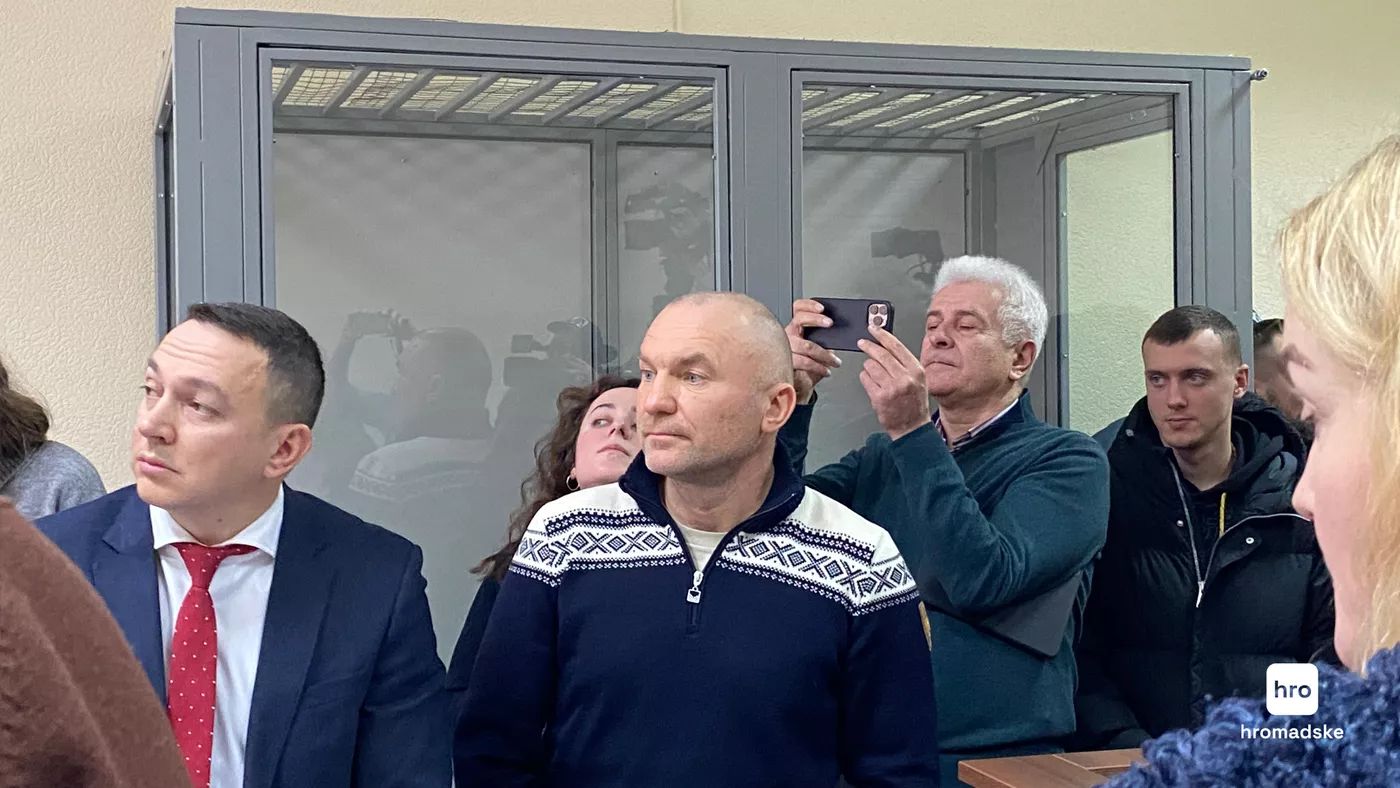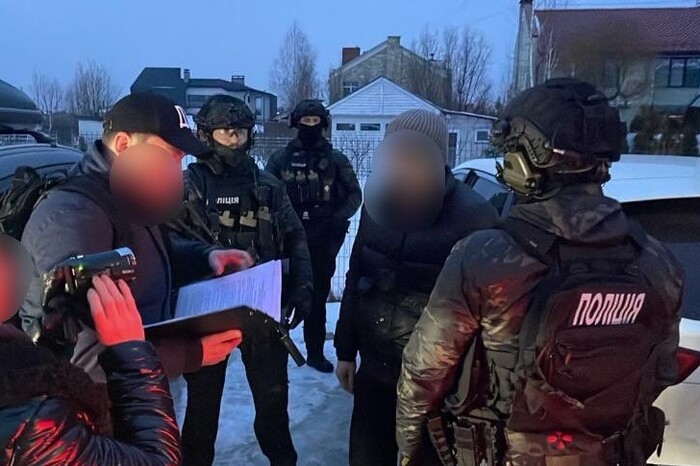The recent arrest of prominent Ukrainian investor Ihor Mazepa has brought long-simmering outcry over the perceived overreach and coercion of private companies by the country’s law enforcement bodies to a boiling poin
According to President Volodymyr Zelenskyy, Ukraine’s National Security and Defense Council responded on 23 January by approving measures meant to curb intimidating investigative tactics and boost oversight of police and security agencies accused of misusing their powers against the business sector.
The actions come after agents from Ukraine’s State Bureau of Investigation last week detained Mazepa, founder of one of the nation’s largest investment firms, Concorde Capital. He stands accused of unlawful privatization of land for the construction of an elite residential complex.
Mazepa rejects the accusations, calling his arrest a "dangerous precedent" of pressure on "honest businessmen" with "entrepreneurial initiative."
Mazepa's investment firm Concorde Capital stated that his detention is connected to his "public position on increasing pressure from law enforcement on Ukrainian business owners." The company said security officials acted unlawfully and aggressively, denying lawyers access and seizing employees' documents and personal funds during a series of raids. Concorde Capital added it is preparing an appeal to Ukraine's leadership over the "destruction of the investment climate."

Business accuses state of pressure, revival of "maski shou" raids
Mazepa’s arrest amplified accusations that state law enforcement has revived the practice of “maski-shou” – the use of special forces with masked faces to conduct disruptive raids on businesses, harkening back to the corruption that pervaded Ukraine under former President Viktor Yanukovych, writes
financial editor of Liga.net Oleksandr Detsyk.
“The business is under the greatest pressure from law enforcement agencies in the last 20 years. In some cases, the authorities have outdone the Yanukovych era,” Mazepa himself told Forbes in June.
Authorities maintain intrusive actions are sometimes warranted by risks of evidence loss or lack of cooperation. But business leaders allege the use of overbearing and legally questionable tactics like sudden asset seizures, arrests, and armed raids over flimsy premises, in order to extract bribes or force concessions. They argue investigations frequently seem unfounded, or drag on endlessly to maintain pressure, while employing unnecessarily aggressive methods harkening back to Ukraine’s corrupt past.
According to Ukraine's business ombudsman Roman Waschuk, only around 6% of criminal cases against business figures actually reach trial, while over three-quarters are closed without resolution. Statistics indicate a sharp rise in unresolved “dormant” cases left lingering indefinitely, which critics argue enables endless pressure on companies.
An analysis by the economics media Ekonomichna Pravda shows that the proportion of cases reaching trial or at least being closed has fallen each year, with "dormant" cases growing. This allows the state to investigate the cases years without end, under permanent threat of property seizure.
Earlier, four high-ranking interlocutors told Forbes that the pressure exerted on businesses is directly or indirectly related to the fact that nearly all Ukrainian law enforcement organs came under the influence of Oleh Tatarov, the dodgy deputy head of the Office of the President accused of involvement in corruption scandals and mandating the crackdown on Euromaidan protesters in 2014.

Among other vocal victims are major restaurant chain !Fest, whose co-owner Yuriy Nazaruk decried a 17 October raid by the Bureau of Economic Security (BES) and Security Service as a “classic ‘maski-shou’” with rifle-toting officers in body armor. Customs broker Optima's construction site was shut down by police this month over disputed land ownership claims. Ukraine’s largest fire equipment maker Pozhmashyna contends nearly every state contract it fulfills now triggers a criminal probe, Liga.net writes.
Bureau of Economic Safety: a failed initiative with good intentions
The BES, created in 2021, was a step to address the long-standing practice of intimidation of business by law enforcement. It was formed to replace the old financial police and take over investigations of economic crimes. However, critics argue it has failed to curb corruption and itself employs coercive practices like armed raids known as "maski-shou."
While tasked with probing economic crimes, the BES is still able to handle only under half such cases, with the rest being dealt with by the police and Security Service. Statistics show most investigations stall out under the BES without resolution.
According to a report by Ukraine's Business Ombudsman Council, currently, only about 5% of criminal cases opened by Ukraine's Bureau of Economic Security (BES) make it to court. For other agencies like the National Police and SBU, the figure is around 10%.
The report says that frequently, the very fact and procedure of opening a criminal case serves as a means of pressure and punishment for a business.
Meanwhile, Ukrainian law enforcement bodies often duplicate functions and compete over investigative jurisdiction, enabling them to take turns "terrorizing" individual companies, the source notes.
Inspection by regulatory and tax bodies is also cited as a potential pressure tactic, even if the results are later defeated in court. LIGA.net quotes business ombudsman inspector Volodymyr Kutsenko suggesting that the volume of audits and fines levied could be a way for agencies to demonstrate activity, despite losses in court. New inspections with fresh fines can be opened while appeals of previous ones are pending.
This has fueled calls for reforms and tighter oversight of the security agency. Business leaders say more robust safeguards are needed to prevent the BES and other law enforcement bodies from reviving coercive abuses of power seen under past corrupt regimes.
State takes steps to reassure business leaders
To address the turmoil, Ukraine's National Security and Defense Council (RNBO) approved five steps aimed at easing outrage among the business community over perceived overreach by law enforcement on 23 January.
- A Council on Entrepreneurship will be established to address complaints from the private sector.
- Legislation will be submitted to parliament to reform the Bureau of Economic Security, making it the sole agency handling criminal cases related to business and the economy, besides the National Anti-Corruption Bureau. The goal is to provide more protections for companies during investigations.
- The system for monitoring risks and blocking/unblocking tax invoices will be audited.
- All registered criminal cases potentially risky for the economy will be audited, plus a 3-month moratorium imposed on disruptive actions like searches and asset seizures.
- A public analytics module will be created for the Unified Register of Pre-Trial Investigations to track law enforcement activities, along with an online system for businesses to submit complaints.
“The government’s economic team and business stand on the same side. I am ready to personally stand up for every entrepreneur,” stated Economy Minister Yulia Svyrydenko.
This is not the state's first attempt to ease tensions with business leaders. Seven months earlier, on 29 June 2023, at a meeting with business community representatives, Volodymyr Zelenskyy proposed to grant only one body, the BES, the right to conduct inspections in response to business complaints. Already then, entrepreneurs were complaining about the resurgence of the "maski shou" methods from Yanukovych's time.
One day after the RNBO meeting, the Prosecutor General's Office met with the Business Ombudsman Council and business representatives.
They noted that the Prosecutor General's Office has a unit for investment protection that can assist entrepreneurs, though formal complaints remain relatively few. In 2023, this unit reviewed 152 appeals and oversees 215 total cases, providing aid in 120 instances.
Additionally, as of 1 January 2023, a pilot system has been launched to track and evaluate the proportionality of investigative actions like raids on businesses. It is unclear when this tool for tallying and assessing the appropriateness of such actions will be fully operational.
Business union cancels planned boycott
The actions taken by Ukrainian authorities have gone some way toward easing outrage within the business community. Manifesto 42, a union of business leaders, has called off a planned warning strike on 1 February, but is demanding additional steps to curb abuses.
In a 24 January statement, Manifesto 42 cited concrete steps taken by authorities addressing their key demands, including Ukrainian President Volodymyr Zelenskyy staking out a position against controversial “maski-shou” raids on companies. The statement also noted the government's work on legislative initiatives to restrict “abuses of power by rogue security officials” when conducting probes on businesses and lauded steps that allowed to bail out Mazepa from pre-trial detention.
However, Manifesto 42 warned about risks that could hamper the effectiveness of decisions already taken and said it expects additional action from authorities. Specifically, the group called for involving business associations in auditing restrictions imposed on companies by law enforcement.
Additionally, Manifesto 42 demanded mandatory final approval from major business groups of any bills related to economic security submitted to parliament.
Lastly, the group urged bringing to account officials who damage businesses and Ukraine’s security through coercive pressure tactics.
In conclusion, Manifesto 42 appealed for Ukraine's business community and media to oversee the implementation of the National Security Council’s recent policy actions on ensuring economic security.
Related:
- “People and Know-How, not corruption, now stymie Ukraine’s defense industry,” says Ukrainian Armor director
- Why Ukraine’s wartime anti-corruption quest gives ground for cautious optimism
- Businesses fleeing war to west Ukraine find a new life and help the army
- Investment firm founder detained in unlawful land privatization probe





